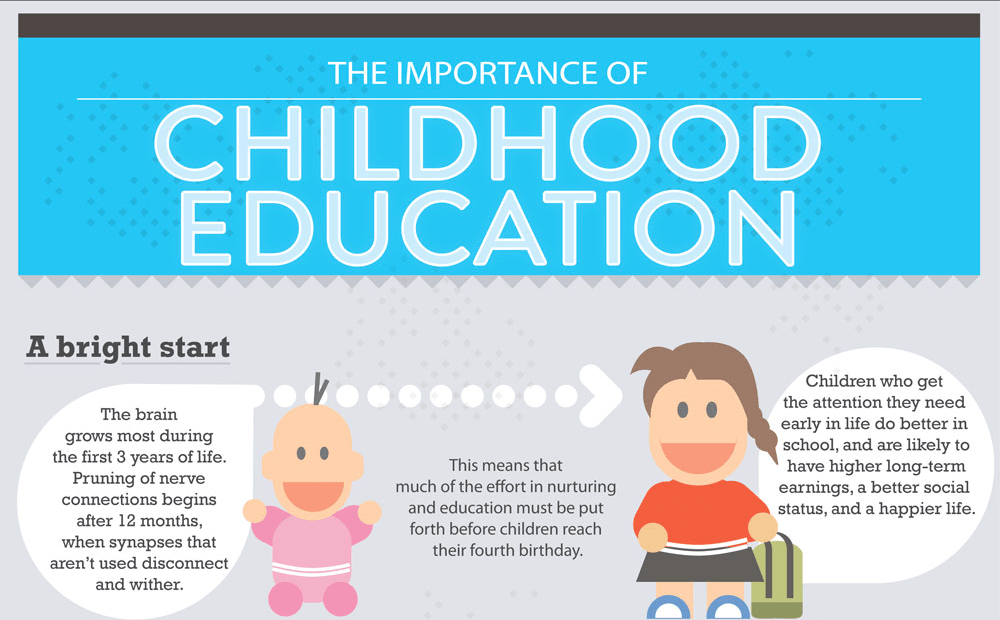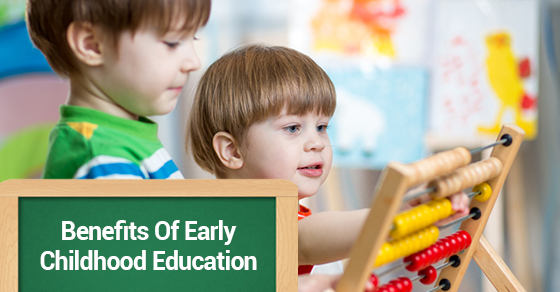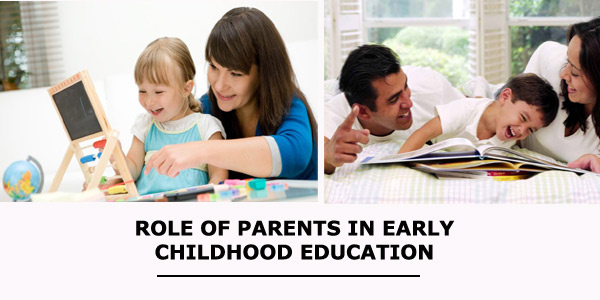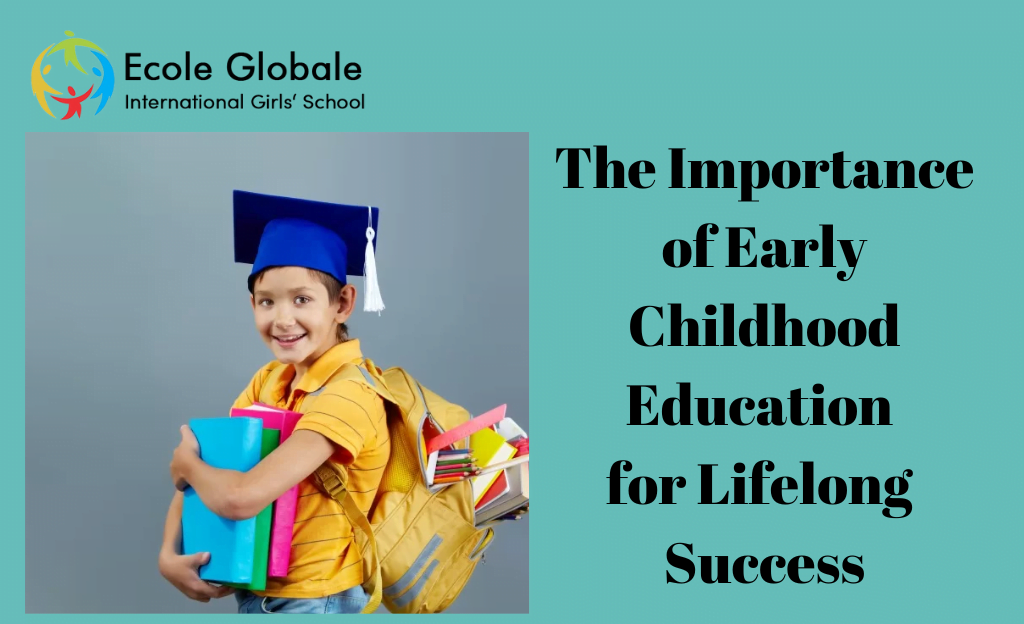Early childhood education is a form of education that provides children with experiences and activities designed to promote physical, intellectual, emotional, and social growth and development. It can be achieved through a variety of activities, including play, storytelling, and singing. Early childhood education differs from other forms of education in that it is meant to prepare children for school and the future.
As per research conducted by the CBSE Schools in India, Early childhood education plays a vital role in the development of our children. It provides them with the necessary skills, knowledge, and confidence to succeed in school and beyond. In addition to preparing them academically, it also helps them develop social and emotional skills that will help them navigate the world as they grow older.
Early childhood education has positive effects on children’s cognitive abilities and social-emotional skills. Studies have shown that children who participate in high-quality early learning programs have higher test scores than those who do not participate in such programs.
Importance of Early Childhood Education

Early childhood education is one of the most critical stages in a child’s development. The impact of early experiences on later life outcomes is well established. But the mechanisms underlying this relationship are still poorly understood.
Studies have shown that children who participate in high-quality early childhood programs are more likely to graduate from high school and attend college than those who do not participate in such programs. They also have higher earnings, better health, and fewer criminal convictions than those who do not participate.
We must invest in their education because it will help them be more successful in life. To better understand the importance of early childhood education, we must first look at how it can affect us as adults.
The latest research shows that attending high-quality early childhood programs helps children develop important cognitive and social skills, increases their chances of graduating from high school and attending college, reduces crime and teen pregnancy rates, and decreases welfare dependence later in life.
Benefits of Early Childhood Education

There are several reasons why early childhood education is beneficial to children, including:
Another survey done by top Schools in India shows that The environment of preschool or daycare can be a positive influence on the developing mind of a young child. Children learn best when they are surrounded by others who share similar interests and goals, so this provides an ideal opportunity for them to do so. It is especially important because young children learn through modeling, which means that they will mimic what they see others doing around them (especially their parents). If these adults are engaged in activities that encourage learning and growth, then it stands to reason that the child will imitate them too.
-
Cognitive development
The earlier children start learning, the more advanced their cognitive development will be. It means they’ll have an easier time learning when they’re older because they already have some knowledge base to build on.
Research has shown that children exposed to early childhood education have better intellectual ability than those who are not. In addition, research shows that children who receive early intervention tend to be more successful in school and life.
-
Social development
Having positive social skills can help children make friends and feel confident when interacting with other people. They’ll also be less likely to bully others or become victims of bullying themselves.
Children who receive early intervention tend to be more socially adept than their non-exposed peers later in life. It is due in large part to the fact that they have been exposed to social situations from a young age, which helps them develop their social skills faster than other children their age might develop theirs.
Children who don’t get enough attention or stimulation from their parents or caregivers may exhibit behavioral problems later on in life. Early childhood education can help prevent this by giving them all the attention and stimulation they need at this age so that they don’t have any behavioral issues later on down the road.
-
Emotional development
Children exposed to early childhood education tend to have higher self-esteem and lower anxiety levels than their counterparts who did not receive early intervention services when they were young children.
-
Physical development
Early childhood education has been shown to have a positive impact on physical development. It can be a great way to get kids moving, and it can also help them develop their motor skills. Children who are involved in early childhood education will be able to work on improving their balance and coordination so that they can become better athletes later on in life.
Role of Parents in Early Childhood Education

-
Parental involvement
There is a growing awareness that the first three years of life are critical to a child’s development. A child’s brain develops rapidly during these years, and experiences influence the way the brain develops. The role of parents in early childhood education is vital in ensuring that children receive the best possible start in life.
Parents play an important role in their child’s early development by providing stimulation and nurturing, as well as guidance and discipline. They are also responsible for helping children learn how to interact with others. Parental involvement in early childhood education programs can help ensure that children develop socially and cognitively.
Parents have a major influence on the behavior and attitudes of their children. They can set limits, teach right from wrong, provide guidance, and support their children through difficult times. It can help them develop into responsible citizens who can make decisions that improve their lives and the lives of others.
A parent’s role in early childhood education is to provide a safe environment for their children to learn about the world around them. Parents should encourage curiosity by providing toys that stimulate learning, reading books together, discussing family outings, and trips to museums or parks where children can explore nature.
Challenges facing Early Childhood Education

-
Lack of funding
As noted in this article, many families cannot afford to pay for high-quality early learning environments or programs. Therefore, they must rely on their local public schools to provide them with these services. However, due to budget cuts, many schools are unable to provide adequate care and education in their classrooms. It has increased classroom size and teacher shortages.
Funding for preschool education has traditionally been low compared with funding for later grades of schooling. It is partly due to the belief that young children do not need as much attention as older children do and partly because it is difficult to measure results in such a short period.
-
Teacher training
The main role of teachers in early childhood programs is to provide a safe environment where children can develop and grow. Teachers must also be knowledgeable in child development, teaching methods, and curriculum planning. Teachers often have limited experience with young children before entering the profession.
-
Curriculum design
It can be difficult to develop an effective curriculum for young children. It must be engaging enough to hold their interest, but not so complicated that it overwhelms them or prevents them from learning new things. Also, the curriculum must be flexible enough to accommodate different learning styles and methods of teaching.
Another challenge facing early childhood education is the need for more research on its effectiveness over time. While there have been many studies done on the effectiveness of preschool programs, there are still no long-term studies that show how attending preschool affects a child’s academic success in later years such as high school or college attendance rates or graduation rates from college.
Conclusion
In today’s fast-paced society, parents are working longer hours and children often spend more time in front of computers than they do playing outside. As a result, children are not getting the physical activity they need for healthy development and their attention spans have decreased significantly.
Early childhood education has been proven effective in helping children improve their academic skills by providing hands-on learning experiences that stimulate growth and development in all areas.
For any queries related to parenting, schooling, or any students-related tips, click here to check out our latest blogs.






